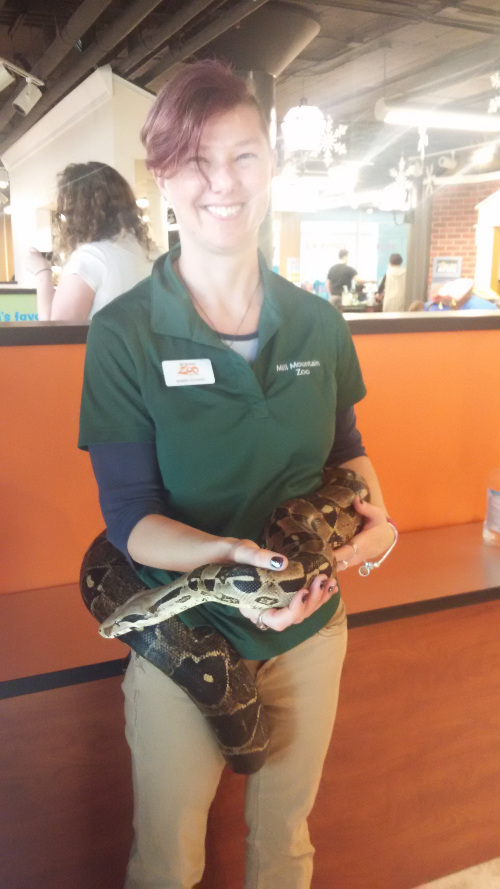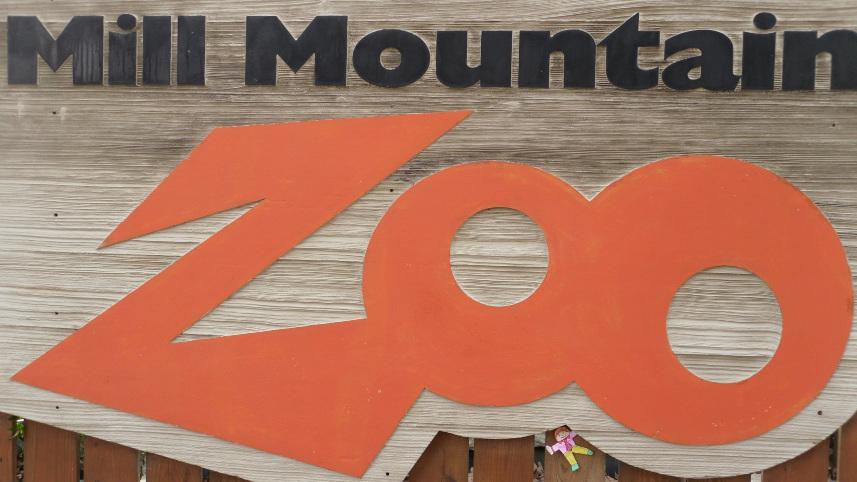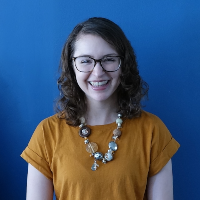NCSE’s Breaking Down Barriers program launched a pilot initiative in 2019, called the Museum Collaborative, to provide activity kits to science museums in primarily rural areas. Small rural museums typically have pre-existing capacity in terms of a facility and dedicated staff, but can frequently use more activities. Plus they are often situated in communities where topics like evolution and climate change remain controversial. We’ve been excited to work with our eight partners across six states, with an eye towards expansion in the future. As with all our initiatives, we want to try to use the power of evidence in thinking about how to scale the initiative in an effective and sustainable way. Therefore, one of our 2020 research projects is to work with graduate fellows and several academic researchers to understand the potential for working with rural museums and academic collaborations.
Our current partner sites represent a great starting point for understanding the diverse needs of rural museums. Bambi Godkin works as the Education Manager at the Mill Mountain Zoo in Roanoke, Virginia. She works in an area where talking about evolution and climate change can be difficult. As you’ll read in the interview, she works to build trust and affinity with her audience around these topics by making linguistic choices that don’t immediately isolate them. For people who are hesitant about science, Godkin’s strategy can be effective for teaching the concepts of evolution and climate change.
Emma Doctors: Bambi, thank you for taking the time to chat. Can you start by sharing a little bit about the Mill Mountain Zoo?
 Bambi Godkin: The zoo is a small mountaintop zoo founded in 1952. At the time, there were fiberglass structures that had animals in them. But then in the late seventies or early eighties, the zoo's focus switched to a more traditional emphasis, with conservation and education about native species. Roanoke has a sister city — Wonju, South Korea — so we also highlight animals that come from a similar mountain climate in Asia. We’ve got eight acres of land, but no indoor classrooms or facilities other than our gift shop and our administrative cabin. It's really hard for us to do programming on the ground in the winter, but we do outreach year-round. So I go up to the schools and take exhibits to classes as well as to nursing homes and libraries.
Bambi Godkin: The zoo is a small mountaintop zoo founded in 1952. At the time, there were fiberglass structures that had animals in them. But then in the late seventies or early eighties, the zoo's focus switched to a more traditional emphasis, with conservation and education about native species. Roanoke has a sister city — Wonju, South Korea — so we also highlight animals that come from a similar mountain climate in Asia. We’ve got eight acres of land, but no indoor classrooms or facilities other than our gift shop and our administrative cabin. It's really hard for us to do programming on the ground in the winter, but we do outreach year-round. So I go up to the schools and take exhibits to classes as well as to nursing homes and libraries.
ED: What is a typical day like, and what sort of tasks do you engage in?
BG: It really varies from day to day. Some days I'm working on administrative stuff at my desk all day, and some days I'm not at my desk at all. It really depends on what we have going on. Once we get to the warmer season, I might have to do programs for field trips in the morning, then come back to the zoo to check email and work on some spreadsheets, and then go back out to a school or a nursing home for outreach in the afternoon. When I’m at my desk, time is usually dedicated to grant writing and updating records.
Also, because we have a living collection, if we have an animal that gets added to our collection, I update our tours, volunteer handbooks, and activity sheets. One of my days is usually spent planning our social media for the week. And then I have other priorities like planning content and the timeline for Roanoke Valley Gives, which is a fundraiser that is put on by a local foundation. Many of the non-profits in the Valley participate in an attempt to raise as much money as possible in a 24-hour time period. And then there's a lot of record-keeping and tracking — tracking field trips, outreach numbers, attendees, how much people spent on a particular program, how much money we brought in, etc.
ED: Are there potentially sensitive topics that you're broaching with people? And have you seen attitudes towards these topics shift over time?
BG: Yeah, for us it’s evolution. I usually use the word “adaptation” anywhere I can instead of using the word “evolution.” However, I now mention climate change often in all of my programming. Snow leopards (as well as other endangered species in our collection) are really suffering from a loss of prey species in the wild due to climate change.
ED: That’s something that really stands out to me. You’re still teaching the science behind evolution, but adapting it (as it were) to fit your audience by using the word “adaptation” and not “evolution.” How did you decide that would be an effective solution?
BG: It must have been an unconscious choice in the beginning. I think I’d only done probably a couple of programs before I realized that saying “adaptation” was less likely to discourage listeners. No one seems to blink an eye now; I don't get strange looks on people's faces. It's done the trick.
ED: I think that's such an interesting strategy because you're still teaching the science and the importance behind it, but in such a way as to minimize the potential for pushback. What would pushback look like?
BG: An angrily worded email, perhaps. The most serious consequence would be a school or camp or whatever not returning or not inviting us to return.



